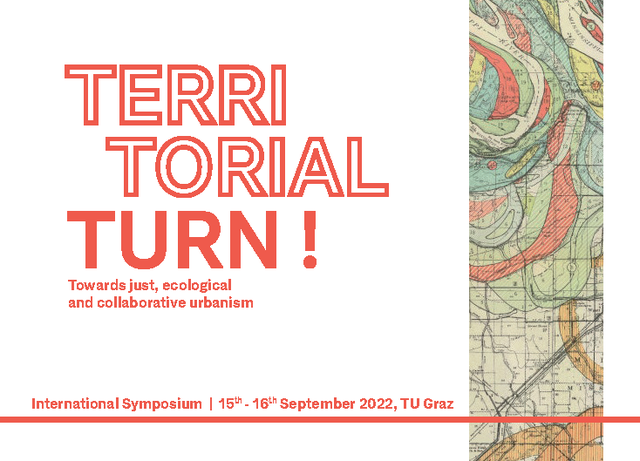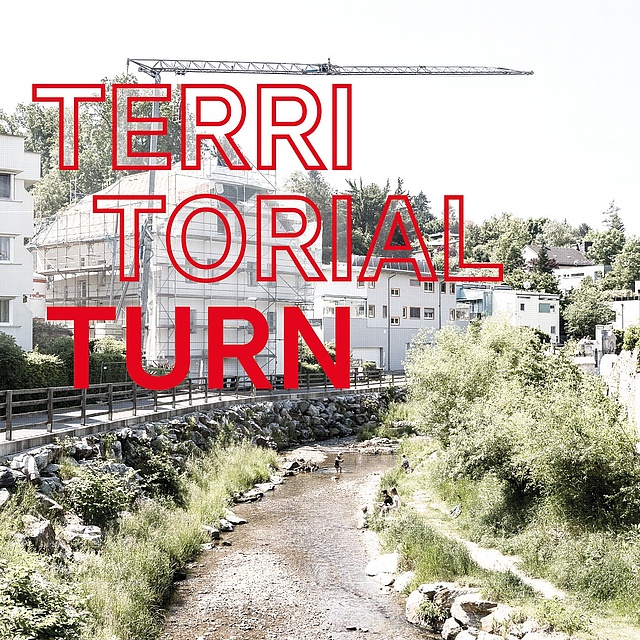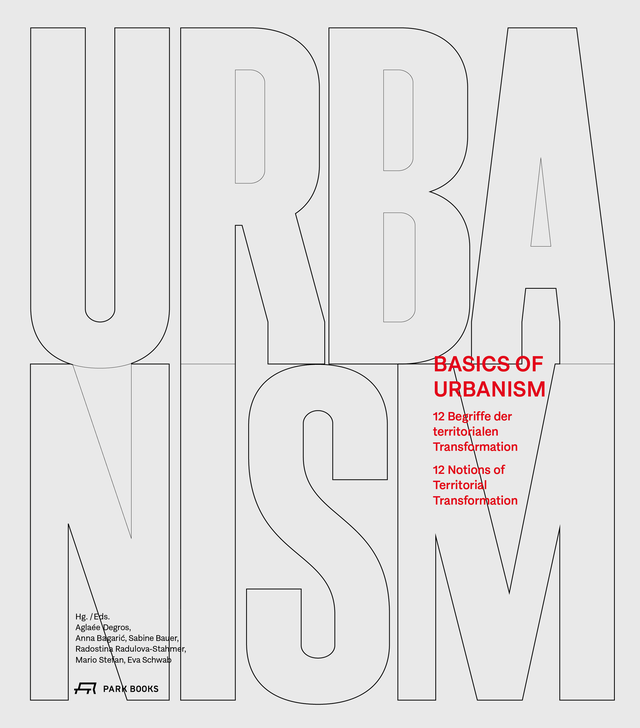Symposium: Territorial Turn!
15th –16th of September 2022

The Alluvial Valley of the Lower, Mississippi River; Harold Fisk, 1944
The symposium Territorial Turn! takes place in Graz on the 15th and 16th of September 2022. The symposium, which is part of the New European Bauhaus Program, offers 1,5 days of presentations and discussions with international scholars and practitioners of the disciplines of Urbanism, Architecture, Landscape, Planning, Urban Studies and Design such as Susanne Eliasson (GRAU), Stefan Rettich (University of Kassel), Eva Pfannes (OOZE), Paola Viganò (EPFL Lausanne, IUAV Venice), who will present their perspectives on the Territorial Turn.
It will also feature testimonies of Ali Madanipour (University of New Castle), Christian Schmid (ETHZ), Maarten Van Acker (University of Antwerpen), Erik Wieërs (Flemish Government) and Judith Schwentner (City of Graz) and Chris Younès (École spéciale d'architecture and École nationale supérieure d'architecture de Paris La Villette). In addition, paper presentations will be followed by discussion panelled with Han Meyer (TU Delft ) and Marcel Smets (KU Leuven), among others.
Exhibition: Territorial Turn
2nd of February - 3rd of April 2022

(c) Martin Grabner
The exhibition Territorial Turn, developed by the Institute of Urbanism at TU Graz under the direction of Prof. Aglaée Degros, described the essential change in fundamental framework conditions and values in urbanism. It introduced courageous concepts, presented pioneering possible solutions and described fundamental urbanistic notions that contribute to actively thinking, planning, designing and implementing an ecological and equitable future of the city on a territorial scale. Seven selected practical examples from Nantes, Leipzig, Amsterdam, Leuven, Vienna, Péronnes-lez-Antoing and Trofaiach were used to demonstrate a future-oriented approach to urbanism.
"Territorial Turn - Plea for a Paradigm Shift in Urbanism" was an exhibition by the Institute of Urbanism in cooperation with Haus der Architektur.
Book: Basics of Urbanism

Aglaée Degros, Anna Bagarić, Sabine Bauer, Radostina Radulova-Stahmer, Mario Stefan, Eva Schwab
Zürich: Park Books, September 2021
Deutsch/Englisch,
ISBN 978-3-03860-260-6
EUR 38,00
Order by publisher
Urban design today is facing a multitude of challenges. Using twelve key terms, this book connects these challenges to projects in this field. It introduces concepts. presents possible solutions, and describes implementation processes. A special focus is put on the interaction of the built environment with living systems—an approach that is slowly gaining acceptance within the urban design community and that is setting aside a primarily building-oriented practice in favor of an increased appreciation of public space.
Basics of Urbanism defines and illustrates parameters with a clearly territorial approach to urban design. Space between buildings is treated as an essential structure for environmental and social change within small-scale neighborhoods and blocks, as well as at the level districts and even entire cities. This approach includes forward-thinking temporal aspects as well as the implementation of existing resources in the creation of new spatial qualities.
With contributions by Markus Bogensberger, Aglaée Degros, Eva Schwab, Marcel Smets. Interviews with Blaz Babnik, Stefan Bendiks, Ilka Cerpes, Harald Grießer, Gernot Kupfer, Robert Loher, Claudia Nutz, Ans Persoons, Katarina Psegionnaki, Michael Ryckewaert, Rudolf Scheuvens, Carol Schmitt, Marcel Smets, Maarten van Aacker, Bernd Vlay, Johann Zancanella, and Sibylla Zech.